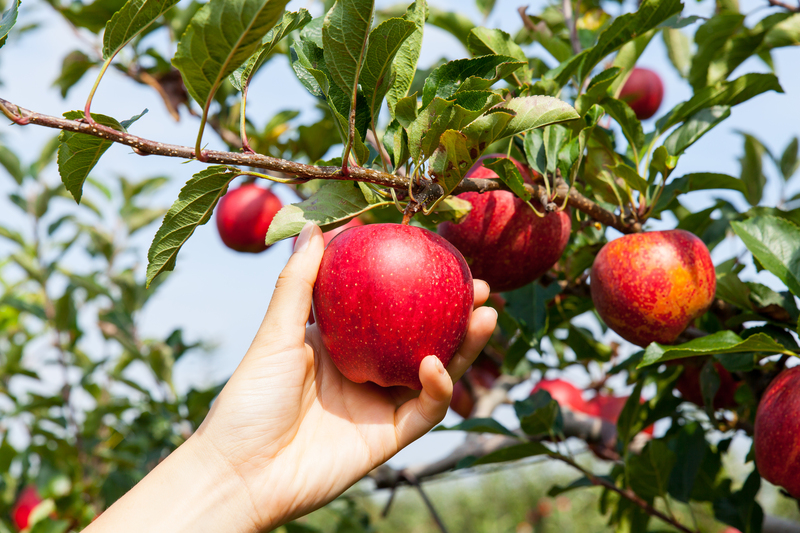Ways to make your garden eco-friendly and reduce waste
Posted on 29/06/2024
In the era of climate change and increasing environmental awareness, more and more people are looking for ways to make their daily lives more eco-friendly. One area that often gets overlooked is the garden. From conserving water to reducing waste, there are many simple steps you can take to create an environmentally friendly garden. Not only will these measures help reduce your carbon footprint, but they can also contribute to a healthier and more sustainable ecosystem. In this article, we will explore some of the most effective ways to make your garden eco-friendly and reduce waste.
Conserve Water
Water is one of our most valuable resources, and it is essential for maintaining a healthy garden. However, traditional gardening practices can be incredibly water-intensive and wasteful. Here are some tips to help you conserve water in your garden:
- Install a rain barrel: Collecting rainwater is a great way to reduce your reliance on municipal water supplies and save money on your water bill. Simply place a barrel under a downspout to collect rainwater, which can then be used to water your plants.
- Choose native plants: Native plants are well-adapted to the local climate and require less water than non-native species. They also attract pollinators and other beneficial insects, creating a more biodiverse and resilient ecosystem.
- Mulch regularly: Mulching helps retain moisture in the soil, reducing the need for frequent watering. Organic mulches like grass clippings, shredded leaves or bark chips also add nutrients to the soil as they break down.
- Water strategically: Water early in the morning or late in the evening when temperatures are cooler and evaporation rates are lower. Also, avoid overhead watering as it can result in significant water loss due to evaporation.

Compost Kitchen Scraps
Food waste makes up a significant portion of household waste that ends up in landfills every year. Instead of sending your kitchen scraps to the landfill, turn them into nutrient-rich compost for your garden. Composting is a natural process of decomposition that turns organic waste into a rich soil amendment. By diverting food waste from landfills, you are not only reducing greenhouse gas emissions but also creating a valuable resource for your garden.
To start composting, designate an area in your garden for a compost bin or purchase a compost tumbler. Add a balanced mix of green (nitrogen-rich) and brown (carbon-rich) materials such as fruit and vegetable scraps, eggshells, coffee grounds, leaves, and shredded paper. Regularly turning the compost and keeping it moist will help speed up the decomposition process. The resulting nutrient-rich compost can then be used to fertilize your plants naturally.
Use Sustainable Gardening Practices
Certain gardening practices can have harmful effects on the environment, such as overusing pesticides and herbicides or relying on gas-powered tools. Consider these eco-friendly alternatives:
- Use organic pest control methods: Chemical pesticides can harm beneficial insects in your garden and have negative impacts on the environment. Try using natural alternatives like insecticidal soap, neem oil, or companion planting to keep pests at bay.
- Attract pollinators: Pollinators play a crucial role in maintaining healthy ecosystems and our food supply. To attract pollinators to your garden, plant flowers that bloom throughout the season and provide nesting sites such as bee houses or piles of leaves.
- Choose manual tools: Gas-powered lawn mowers and leaf blowers contribute to air pollution and noise pollution. Instead, opt for manual tools like push mowers and rakes to maintain your lawn and clean up debris.
- Practice crop rotation: Rotating crops each season helps reduce pest problems and replenish soil nutrients naturally.
Pros and Cons
As with any lifestyle change, there are pros and cons to making your garden eco-friendly. The benefits of creating an environmentally friendly garden include reducing waste, conserving water, promoting biodiversity, and contributing to a healthier ecosystem. However, it may require more effort and time to maintain an organic garden, and you may not see instant results as you would with chemical fertilizers and pesticides. It also may be more expensive initially to purchase eco-friendly products and tools.

Takeaways
- Save water by installing a rain barrel, choosing native plants, mulching regularly, and watering strategically.
- Compost kitchen scraps instead of sending them to landfills.
- Use sustainable gardening practices such as organic pest control methods, attracting pollinators, opting for manual tools, and rotating crops.
Conclusion
Creating an eco-friendly garden is a simple yet effective way to reduce your impact on the environment. By implementing these practices in your garden, you can conserve water, reduce waste, promote biodiversity, and help create a more sustainable and resilient ecosystem. Let's all do our part to make our gardens greener and contribute to a healthier planet for future generations.












